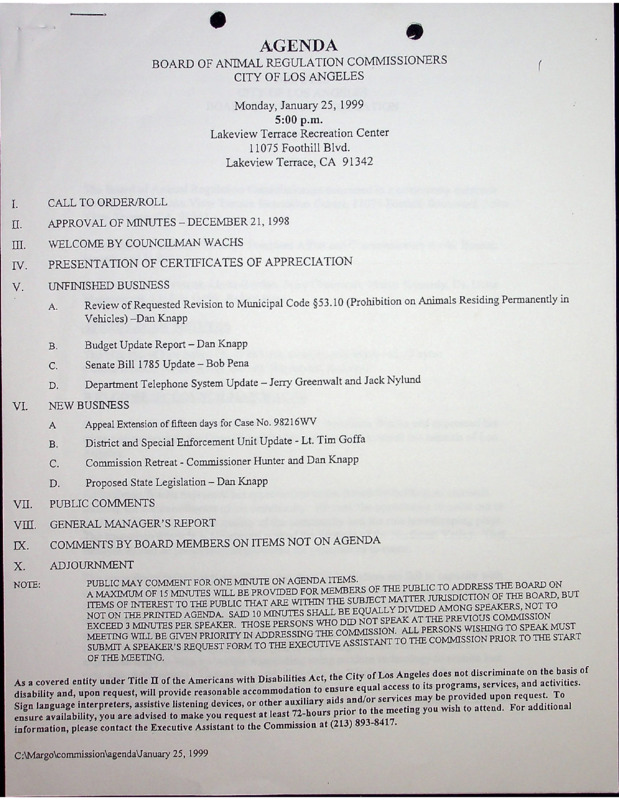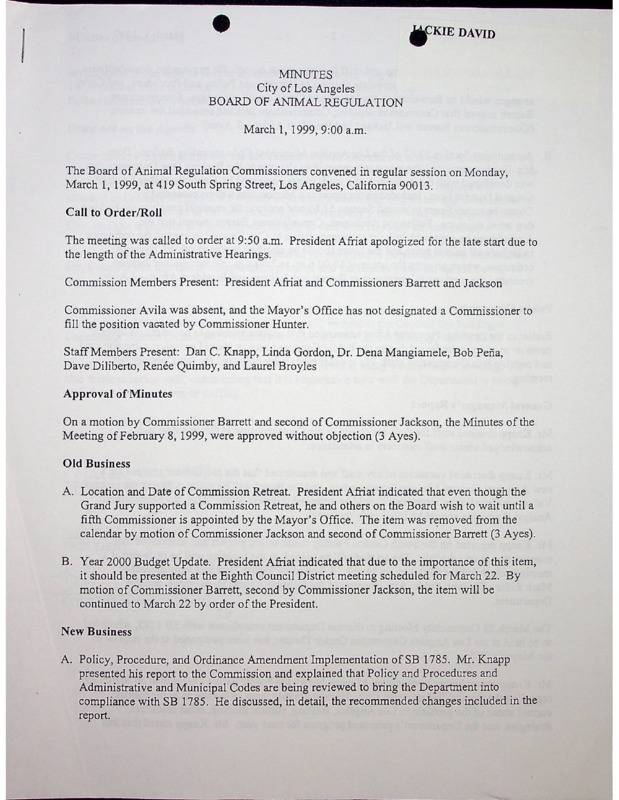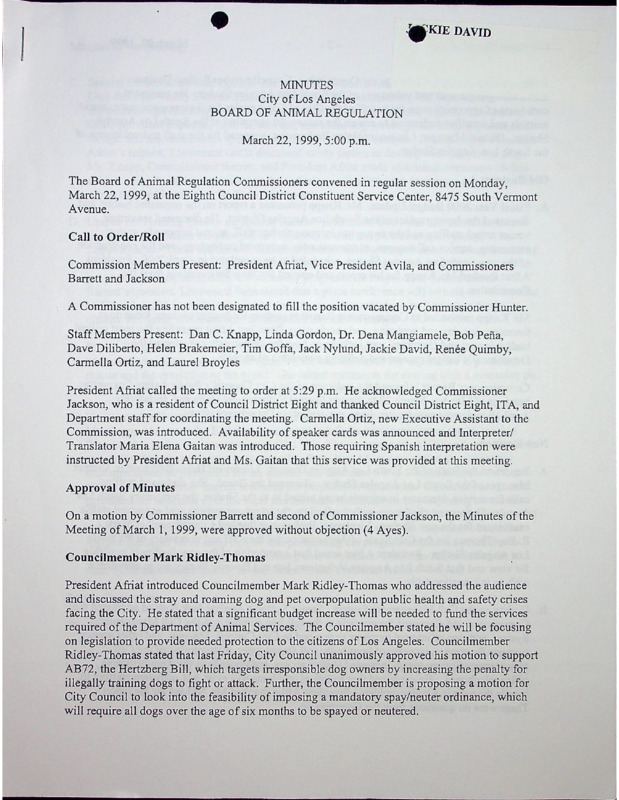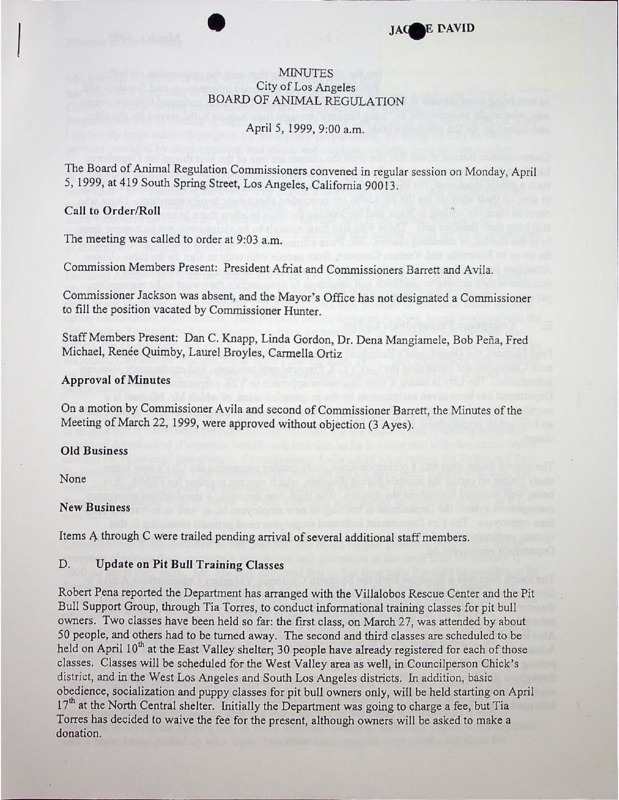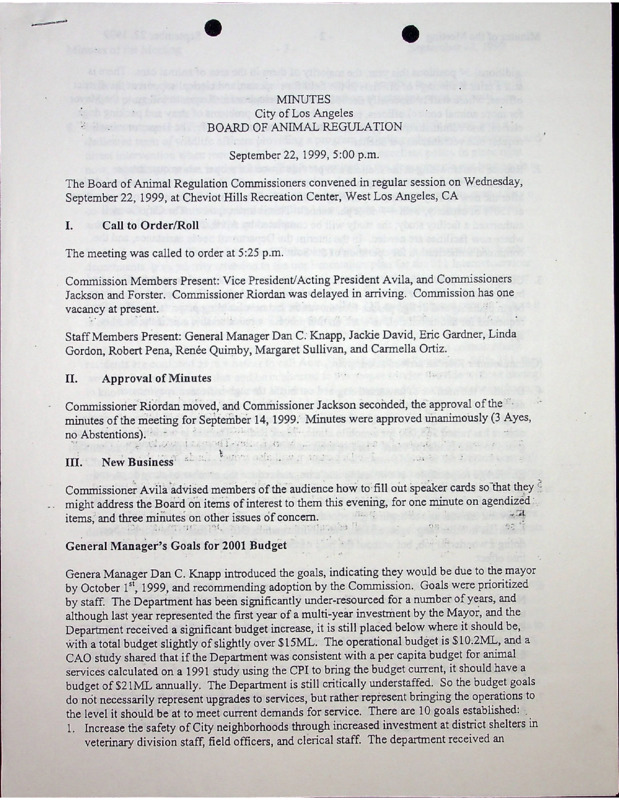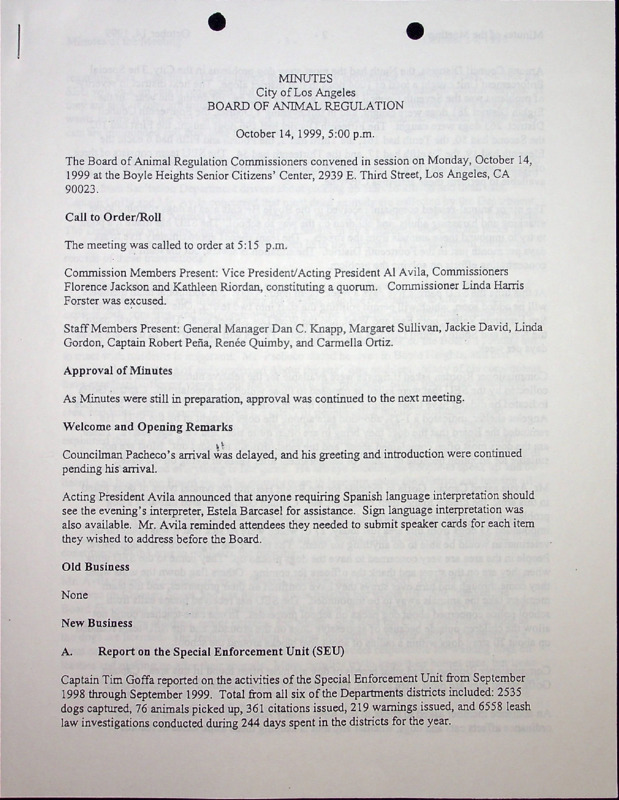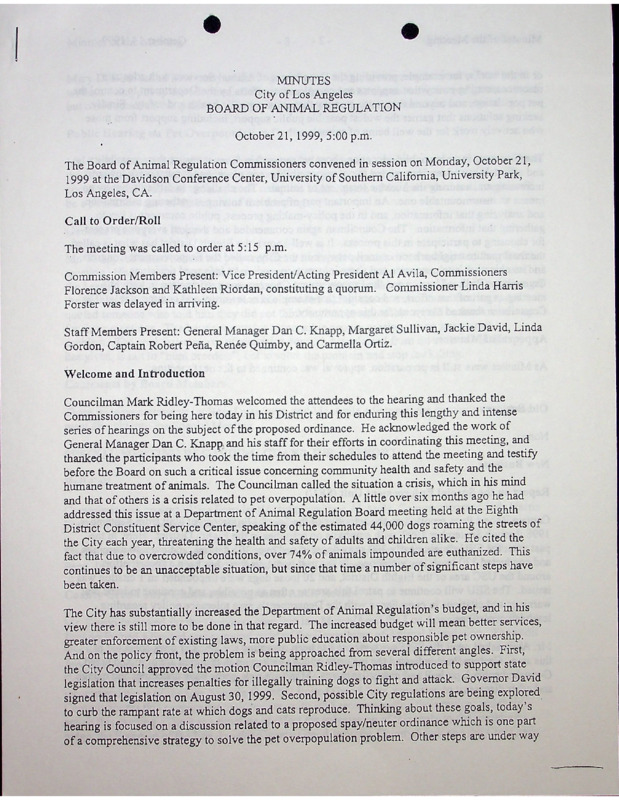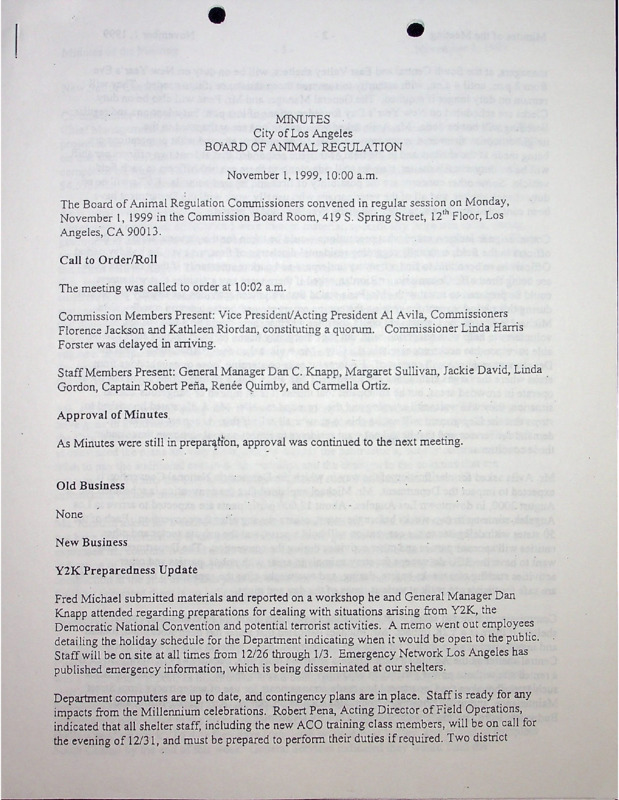Breed Specific Legislation, 1999-2001
Several efforts have been made to pass breed-specific legislation to mitigate perceived risks posed by certain breeds, especially pit bulls. The archives house a collection of Board Meeting Minutes from the Los Angeles Department of Animal Services, formerly known as the Department of Animal Regulation. This collection includes records from the late 1990s and early 2000s, a period marked by intense debates over dog regulations, particularly concerning pit bulls, in response to a rise in dog attacks and stigmas.
Under the Breeding Section of an untitled and undated document, guidelines and licensing processes for selling and breeding animals in Lake Elsinore are outlined. Breeding cats or dogs without a permit from the Animal Control Program is prohibited. These permits, valid for 12 months, must be renewed annually. Offspring cannot be adopted or sold until they are at least 8 weeks old and immunized. If a new owner cannot keep the animal, the permit holder must help find a new owner or accept its return. Advertisements for adoption must display the permit number. Adherence to the Minimum Standards of care approved by the Division of Animal Control is required, and new owners must agree in writing to spay/neuter the animal. Permits can be revoked if the requirements are violated, and the Animal Control Program is responsible for enforcing these requirements.
A series of board meeting minutes from January 1999 to November 1999 discuss the passing of the new proposed legislature and new policing guidelines.
On January 25th, 1999, the board was making comments on Senate Bill 1785. It addresses care and standards in the shelter. At this time, it was a “felony for an owner of an animal that is known to have a propensity towards violence to not properly care for that animal if said animal attacks and kills a human being.” SB 103 would add injury to these changes. AB 72 applies specifically to dog bites, charging the owner if a dog bites someone on two separate occasions. Dan Knapp, the general manager of the Department of Animal Regulations, mentioned the large toll being taken on by staff for bearing the burden of irresponsible pet owners. Tia Torres, animal activist and founder of Pit Bull Rescue agrees that the Department of Animal Regulation should not have to take on this responsibility (Board Agenda Jan 25, 1999).
The March 1, 1999, Board Meeting Minutes discuss the Hertzberg Bill for dangerous dogs, which is the name for AB 72. Dan Knapp plans to review safety programs with the Public Safety Committee following several incidents, including a fatal attack on a 14-month-old child by a family pit bull. Commissioner Barret will testify on the Hertzberg Bill, aiming to mitigate serious attacks (Board Minutes March 1, 1999).
On March 22nd, it was announced that the city council unanimously approved the motion to support the Hertzberg Bill (AB 72), increasing the penalty for illegally training dogs to fight or attack (link the dog fighting story here). How to deal with dangerous dogs was a prevalent topic, and the Special Enforcement Unit (SEU) were calling for better safety tactics in south Los Angeles. Tia Torres advertised her training classes on “special breeds” at her pit bull support group, Villa Lobos Rescue, that trains on pit bull ownership responsibilities (Board Minutes March 22, 1999).
On April 5th, 1999, the Department of Animal Regulation announced they arranged with Torres to provide informational pit bull training classes at her rescue center. She acknowledged that while this may mostly only attract responsible pit bull owners, word could spread to other dog owners: “two young men who might be described as gang bangers brought their two pit bulls, stayed for the class.” (Board Minutes April 5, 1999).
On September 22nd, 1999, the department addresses pit bulls being traded in and bred to fight, sold for $50 for amateur dog fighting. The penalty for breeding without a permit is $660, increasing up to $1,000 and 6 months in prison if not paid within 30 days. The board mentions the pit bull training program’s success in limiting the amount of stray unwanted pit bulls and promoting better ownership. (Board Minutes Sep 22, 1999).
On October 14th, 1999, the SEU announced how they patrol five days a week, around eight hours a day in the East and West San Fernando Valley, West Los Angeles, the North and South Central Districts, and the Harbor. To impound the large number of animals on the street, they want to extend the SEU patrols to seven days a week. Captain Goffa reported that most dogs impounded in the South Los Angeles shelter are sick and very aggressive, making them difficult to adopt out and resulting in an adoption rate of 1-2%. Most of these dogs are pit bulls, Rottweilers, and German Shepherd mixed-breed dogs. John Appleton gives a personal testimony about how his 5-year-old son was violently attacked by a Dalmatian, stating that this event may not have happened if the animal were neutered. (Board Minutes Oct 14, 1999).
On October 21st 1999, the council mentioned the approval of the legislation to increase penalties of illegal dog training. The department also announced a huge budget increase, which will help enforce existing laws and increase public education about pet ownership. (Board Minutes Oct 21, 1999).
On November 1st, 1999, the Board Meeting consisted mostly of public comments from animal activists Phyllis Daughtery, who believed the problem of animal cruelty was not being properly addressed. She encourages everyone to watch the short animal cruelty film “The Final Round” on animal fighting. Daughtery wrote a letter opposing raising the number of animals permitted in L.A. City. She argued that having more than three dogs in one residence would result in aggressive dog packs, such as pit bulls and rottweilers. (Board Minutes Nov 1, 1999).
